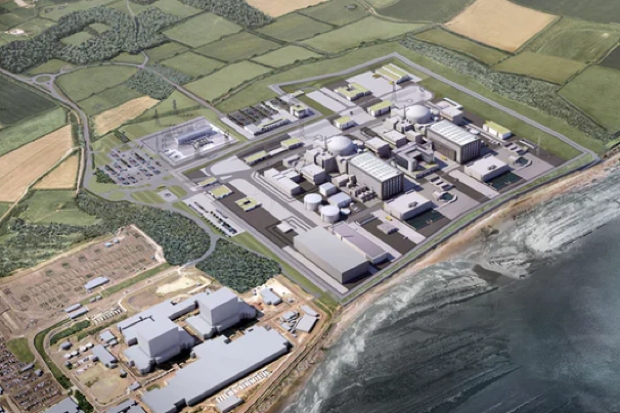Today’s decision to give the go-ahead for Hinkley C after a six-week review seems to confirm what was indicated in July: that Theresa May’s problem with the project was mostly concerned with security issues. What has been announced today is that the government will take a special share in all future nuclear power projects to prevent the plants being sold to unapproved investors. There is no indication that ministers have sought to renegotiate the price. Consumers will still pay EDF for the electricity generated by Hinkley for the next 35 years: £92.50 for every MWh – around double the current wholesale market price.
The government has lost an opportunity to bail out of what already promises to be an absurdly expensive form of energy but which could yet prove to cost taxpayers and consumers far more. There is no commercial-scale nuclear reactor in the world which is yet operational. But the two prototypes under construction, at Flamanville in Normandy and Olkiluoto in Finland, are both years late and three times over budget. Bogged down by these two projects, there is a serious risk that EDF could yet pull out of the project. Worse, it could run into problems halfway through construction and then go to the government and beg to be bailed out, knowing that the government has no alternative plans to generate the 7 per cent of UK electricity which is projected to be generated by the plant.
Just why did the coalition government commit itself to such a risky and over-priced project and why has the May government reaffirmed that commitment? Britain’s self-imposed carbon-reduction targets are such that nuclear is the only realistic option to provide a baseload of low-carbon electricity to keep the lights on when there sun isn’t shining and the wind isn’t blowing. There are cheaper, more proven designs of nuclear reactor available. Trouble is, the government knows it would be almost politically impossible to open a new nuclear power station on a site which is not already occupied by a nuclear power station and where the local population is not already used to living with the potential consequences. It naturally follows that our nuclear energy has to be squeezed out of as few sites as possible, hence the desire to go big. The European Pressurised Reactor (EPR) has the advantage of generating a lot of power from a relatively small space. That makes it ideal for a country with a strong nimby tendency. But it is a huge and very expensive gamble which could all too easily result in a financial meltdown, if not an actual one.







Comments